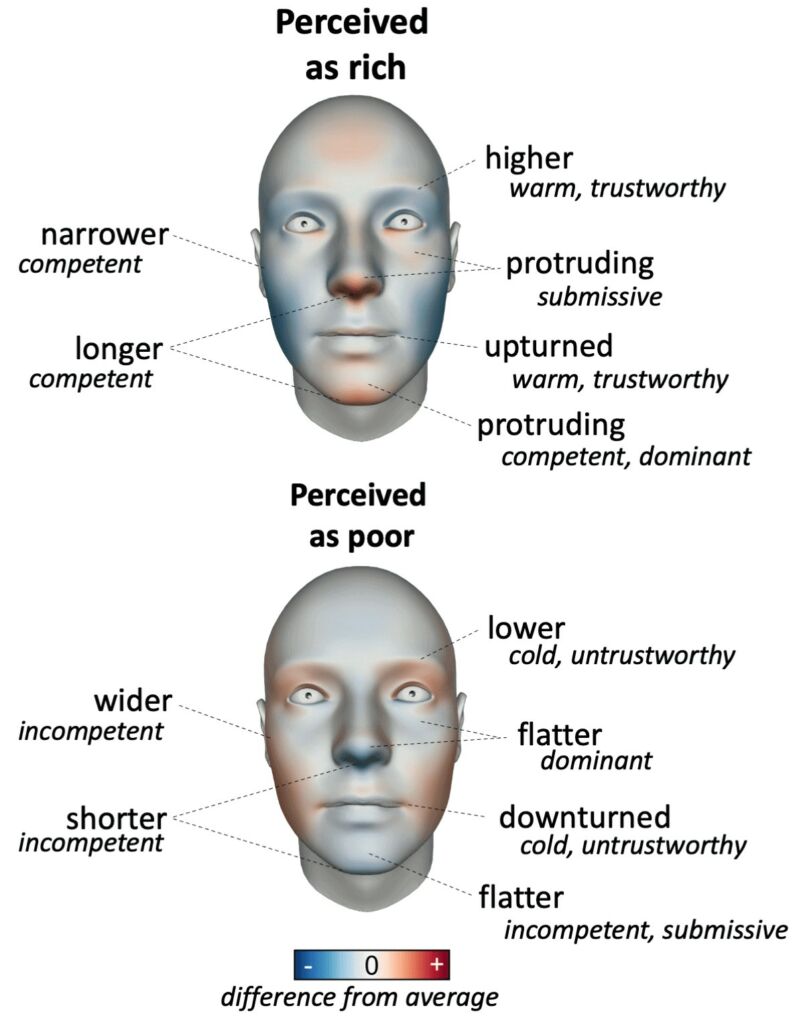A recent study published in the Journal of Experimental Psychology: General reveals that our perceptions of other people's social class are significantly influenced by specific facial features.
According to this research, individuals with wider, shorter and flatter faces, with down-turned mouths and cooler, darker complexions are often seen as belonging to a lower social class.
On the other hand, those with narrower, longer faces, with upturned corners of the mouth, raised eyebrows, eyes closer together and lighter, warmer skin tones are seen as belonging to a higher social class, points out Psy Post.

This pioneering study, led by R. Thora Bjornsdottir, Assistant Professor at the University of Stirling, and conducted during her post-doctoral research at the University of Glasgow, aims to shed light on how facial appearance contributes to judgments about social class.
To explore these perceptions, the research team used a generative 3D model to create a wide range of photorealistic faces. These faces were then rated by participants on a scale from "richest" to "poorest" based on their intuitive perceptions. A subsequent experiment assessed perceptions of social traits such as competence and trustworthiness, with more than 2,400 faces evaluated to map the facial characteristics associated with social class and other related traits.

The results suggest that facial features that lead to higher social class judgments also correlate with perceptions of greater competence, warmth and trustworthiness.
However, the study acknowledges its limitations, focusing primarily on a white British demographic, suggesting the need for further research across diverse cultures, social classes and ethnicities to explore whether these findings can be generalized.
This research underlines the profound impact of facial appearance on social class judgments and the potential stereotypes that influence these perceptions, highlighting the importance of understanding and possibly challenging these biases to promote a more inclusive society.




